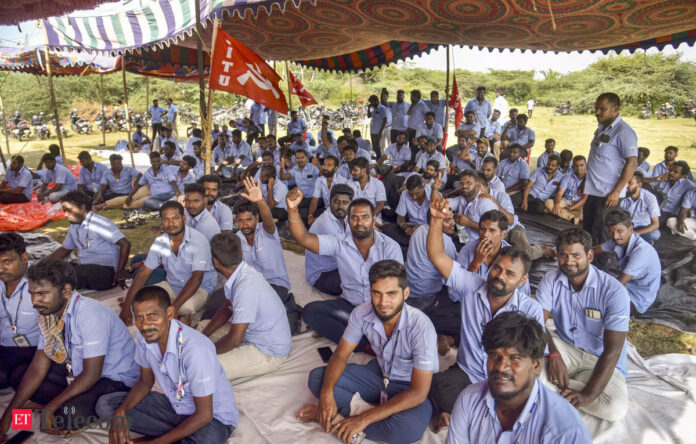In Short:
The Telecom Regulatory Authority of India (Trai) has proposed merging satellite communication licenses to simplify the process and attract foreign investment. This could enhance services and speed up approvals for companies like Eutelsat and Amazon Kuiper, aiming to expand broadband access to rural areas lacking fast internet. If accepted, these changes could significantly boost India’s satellite industry, projected to grow to $44 billion by 2033.
Telecom Regulatory Authority of India’s Proposal
Kolkata – The Telecom Regulatory Authority of India (Trai) has put forth significant recommendations regarding the satellite communications sector that, if approved by the government, could greatly enhance operational efficiency and attract substantial foreign investment. The proposal includes merging key satellite communication permits into a single authorization, aimed at streamlining business processes and expediting approval times.
Impact on Satellite Communication Services
Industry experts highlight that Trai’s suggestion to utilize in-country earth stations for providing satellite communication services abroad could open new revenue channels for Indian satellite operators. By monetizing their existing infrastructure, these companies could strengthen their market position on the global stage.
Licensing Regime Overhaul
Trai has called for a comprehensive overhaul of the licensing framework by merging the VSAT (Very Small Aperture Terminal) and Global Mobile Personal Communications by Satellite (GMPCS) licenses into a unified authorization. According to T V Ramachandran, president of the Broadband India Forum (BIF), these changes could mark a pivotal shift in the Indian satellite communications landscape, potentially attracting billions in foreign direct investment.
Enhanced Business Scope
Ramachandran and other industry leaders believe that the amalgamation of the GMPCS and VSAT licenses will simplify the business landscape for satellite service providers, resulting in expedited clearances, broader business options, and an increased value proposition. A senior executive from a leading satellite firm remarked that this consolidation is a crucial investment catalyst for satellite communications within India.
Current Permitting Landscape
Presently, satellite communication companies must secure a GMPCS permit from the Department of Telecommunications (DoT) and obtain various regulatory approvals, including landing rights from the Indian National Space Promotion & Authorisation Centre (IN-SPACe), before launching commercial satellite broadband services. Currently, only Eutelsat OneWeb and Orbit Connect India possess the necessary GMPCS permits and IN-SPACe authorizations.
Global Interest in the Indian Market
Despite the current constraints, major global players like Amazon-Kuiper, Elon Musk’s Starlink, and Globalstar are eager to establish their footholds in India’s burgeoning satellite communications market, which holds considerable growth potential.
Bridging the Digital Divide
Should the government endorse Trai’s recommendations and authorize the new satellite service framework, it could significantly contribute to bridging the digital divide, particularly in rural India, where approximately 75% of the population lacks access to high-speed broadband. Given that many areas are devoid of cellular or fiber connectivity, satellite systems are seen as a practical solution to connect these underserved regions swiftly.
Future Prospects for the Space Economy
Recent estimates from IN-SPACe suggest that India’s space economy could reach $44 billion by 2033, capturing about 8% of the global market share, up from 2% currently. However, rollout of satellite broadband services will hinge on the government’s allocation of satellite spectrum to companies through administrative channels, with a focus on serving populations currently lacking traditional broadband access.





